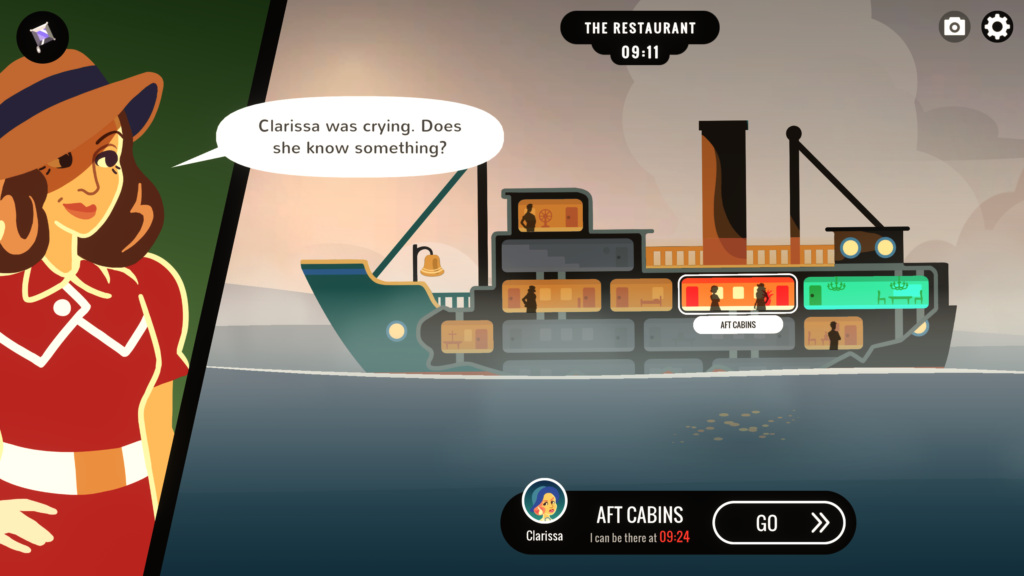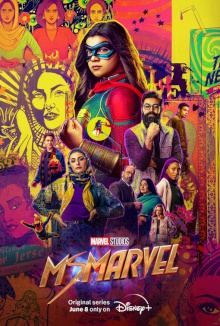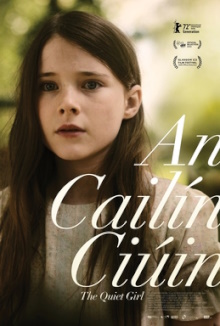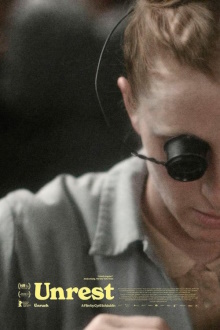The character of Ms. Marvel was created long after I’d stopped reading comics but I’d always thought it was a great idea and my impression was that they pulled it off very well. Introducing the character to the MCU was a natural choice so even though I’ve stopped watching most Marvel content, I wanted to give this a fair shake. As it turned out, the character as played by Iman Vellani is very likeable and it offers an intriguing look into the Pakistani Muslim community in the US. Yet it’s a pretty mediocre superhero show with poor action choreography, weak villains and weak worldbuilding. It’s about what I expected really and it’s a shame that this seemed to have been one of the least popular MCU shows.
Continue reading Ms. MarvelMy Neighbor Totoro (1998)
Here’s yet another Studio Ghibli film as working through them is easy on Netflix. Watching this after Spirited Away is an especially illuminating experience as this one feels so much like a trial run for the later, much grander film. I like this a lot more however precisely because its restraint actually make the magical elements that are present all the more magical. That it’s more grounded also means that the shadow of grief and tragedy behind all of the sweetness feels more real and more poignant. The lessons here are that less really is more and it’s important to actually have things that matter even in a dream-like fantasy.
Continue reading My Neighbor Totoro (1998)The Quiet Girl (2022)
Like its title, this is a quiet, low-key film that breaks no new ground but is well made and its story so sweet that it’s impossible to dislike. It was adapted from a short story Foster by well known Irish writer Claire Keegan, and is the directorial debut of Colm Bairéad. But really it is child actress Catherine Clinch who carries the film. This is also notable in that it’s mostly in the Irish language and so most people will need subtitles for it. Yet the lines of English that it has are delivered in such a thick accent that you’d likely need subtitles for them too!
Continue reading The Quiet Girl (2022)Science Articles (November 2023)
A few interesting bits of news this month but nothing truly groundbreaking. I am happy that there are articles from different fields though.
- The first one delves into the currently hot field of AI and it’s actually about two things. On one level, it’s about training neural networks to make predictions about rogue waves, monster-sized waves that are much larger than expected. One another level, it’s about making the model comprehensible to humans instead of being a black box. This involved taking the particular neural network that produced the most accurate predictions, then using a separate algorithm to generate equations that match its results as closely as possible based on the variables that it uses. So this is not only a practical method of predicting rogue waves but also represents a novel way to make sense of the results of neural networks.
- Next is an announcement of very promising results from a project to stop the spread of dengue by infecting mosquitoes with the Wolbachia bacteria. Such mosquitoes are known to have a reduced ability to spread disease and indeed studies of areas where these special mosquitoes have been released in Colombia show reductions of dengue infections of up to 97%. There are concerns about how safe this is, that it’s expensive and that the pathogens may in time find ways to adapt to the Wolbachia dengue but this is still good news.
- The next article is somewhat similar in that it’s as much about the general approach as the specific results. The broader problem is how do you carry out placebo-controlled trials of substances whose effects patients are aware of if they are present. The substance in question here is ketamine which is thought to have antidepressive properties, yet its psychoactive effects makes it impossible for those dosed to be unaware of it. This experiment therefore involved patients who were undergoing routine surgery. Under the effects of anesthesia, they were given either ketamine or a saline placebo and being unconscious, would not have been aware of the difference. The outcome was assessed during follow-up visits. Unfortunately they found that the ketamine had no greater effect than the placebo in reducing the severity of depressive symptoms but their approach at least is novel.
- Finally, here’s an economics paper that is sure to generate a great deal of follow-up discussion. It challenges the conventional view that income inequality in the US has gone up over time. The claim here is that such views are based on estimates of income shares that are derived from individual tax returns. However this leaves out government transfers, changes in social conditions and demographics. College education for example raises lifetime income but delays entry into the labor market. Adjusting for all these factors, the author claims that real incomes have risen over time for all income groups and there has been little change in the share of income that goes to the richest. The author works for the US Treasury Department so the claims here aren’t so easily dismissed.
Unrueh (2022)
This is like only the second Swiss film I’ve written about here and it’s a very idiosyncratic one even by the standards of the films I watch. There’s no real plot as it’s almost purely exposition, portraying the way of life in the Saint-Imier valley in Switzerland in the late 19th-century. There are two distinctive elements here: the watchmaking industry that dominates the economy and the strength of the anarchist political movement among the residents. It’s an odd juxtaposition, made especially so by the film’s obsession with measurements of time, distance and money. Director Cyril Schäublin’s sympathy for the anarchists is obvious but I’m not quite sure what to make of the rest of it even as it continues to fascinate and engross me.
Continue reading Unrueh (2022)Argentina, 1985 (2022)
So it’s two politics heavy films this week and unlike Detention, this one is completely serious and actually worthy of its subject matter. It covers the so-called Trial of the Juntas in 1985 when Argentina put on trial the leaders of the military dictatorship that controlled the country from 1976 to 1983. It’s superbly crafted and seems to have been deliberately patterned after the best known political thrillers with a strong American influence. The only downside is that you keep waiting for the other shoe to drop, for something truly awful to happen, and I suppose this film is too faithful to the real events to invent something so dramatic as that. What’s most inspiring to me is that this was the most watched Argentine film in its year of release, no mean feat for a legal drama that goes on for almost two and a half hours.
Continue reading Argentina, 1985 (2022)Overboard!

As I’ve mentioned before, I simply adore the text-based storytelling games by Inkle and so just had to get this one. Unfortunately, while Heaven’s Vault had the problem of being too long and too ambitious, this one has the opposite problem of being far too short and too simple. You can be done with pretty much all the content in a couple of hours and even a simple first win will take no more than an hour. I do like the premise but there’s just too little content and the production values are somewhat lackluster as well.
Continue reading Overboard!



